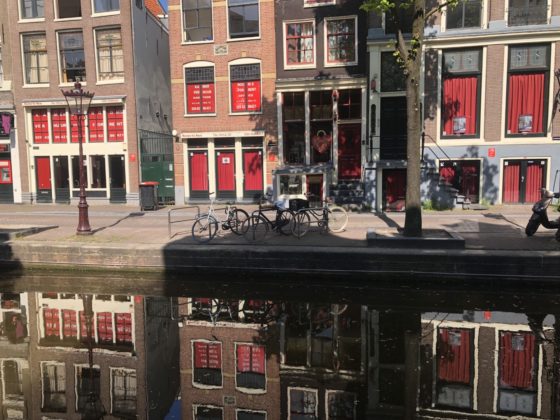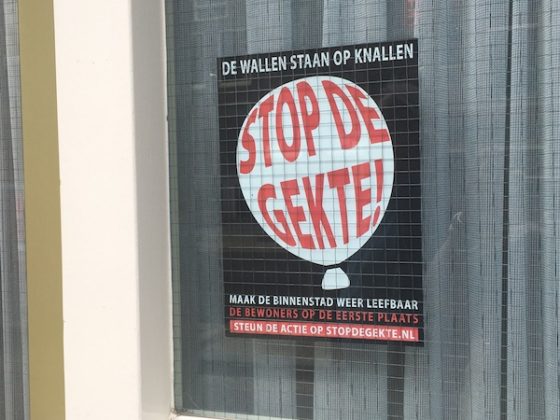Move prostitution and keep tourists out of cannabis cafes, Amsterdam locals say


Amsterdam mayor Femke Halsema is due to publish her long-awaited vision for tourism in the Dutch capital this week which will outline how she sees tourism developing post coronavirus.
The coronavirus epidemic has laid bare how dependent Amsterdam has become on budget tourism, and the mayor’s recommendations, locals hope, will kick-start a process of reform.
And now a group of organisations representing city centre residents have published their own vision for the future of the city centre, ahead of the mayor’s proposals.
‘If the coronavirus crisis has made one thing clear it is that Amsterdam’s inner city, which is a Unesco world heritage site, has been turned into an amusement park,’ the organisations say.
Silence
It is the silence that first hits anyone strolling through Amsterdam’s medieval city, where the bulk of the sex industry is located.
The few locals who are left are siting outside their homes on the pavement, in front of empty brothel windows, housed in 17th century buildings. Children are playing games at the back of the Oude Kerk, where thousands of tourists used to throng.
Dozens of shops selling cannabis-related products and cheap souvenirs are open, as are the odd sex shop, but there are few takers. The Nutella and ice cream stores are closed.
‘You realise just how much we have given over to cheap tourism and the sex trade,’ one former resident told DutchNews.nl. ‘It is just such a pretty part of town. I’d love to live there again.’

The residents’ associations say their plan of action will restore the balance between residents, companies and visitors. ‘A one-sided focus on tourism makes the city economy vulnerable, creates too many low-paid, low-security jobs and does not contribute to sustainable, local employment,’ it states.
The plan calls on officials to uphold the ban on holiday rentals and to close down illegal hotels. Cannabis cafes, it says, should only be open to residents. There should be fewer music festivals and a ban on ‘amusement park’ activities such as beer bikes, water bikes, segways and the like.
In addition, the city, as a shareholder in Schiphol airport, should pressure for a reduction in holiday traffic. Mini supermarkets should be banned from selling alcohol and the sex industry should be moved in its entirety to a hotel in a different location.
Moving the red light district is one of the options which mayor Femke Halsema has already mooted. And earlier this year, a report drawn up by city officials suggested that a special room rental complex for prostitutes or an ‘erotic centre’ complete with prostitution, sex theatres and other facilities are the two most likely options on the table.
Tours
The city has already announced a ban on holiday rentals in most of the medieval centre. Organised tours of the Wallen district have been banned, and no new shops focusing on tourists are permitted.
Geerte Udo, chief executive of city marketing department amsterdam&partners, told DutchNews.nl earlier this month that the city will aim to build a new industry that is socially, economically and ecologically ‘sustainable’.
Instead of attracting the hen parties and stag nights who once turned the red light district into an all night party, it is aiming for a culture and history-loving audience. ‘Amsterdam has always been an open and international city, and we would love to welcome visitors as soon as possible,’ she told DutchNews.nl. ‘But the right visitors.’
Prostitution
Meanwhile, sex worker organisation Red Light United has published its own plans which would allow window prostitution, currently banned until September 1, to resume.
The protocol would require both sex worker and client to wear masks and rubber gloves and only positions which do not involve face to face contact would be permitted.
The organsation argues that the longer sex workers are banned from working, the more likely that they will end up in the illegal circuit, with all the risks that entails.
Thank you for donating to DutchNews.nl.
We could not provide the Dutch News service, and keep it free of charge, without the generous support of our readers. Your donations allow us to report on issues you tell us matter, and provide you with a summary of the most important Dutch news each day.
Make a donation